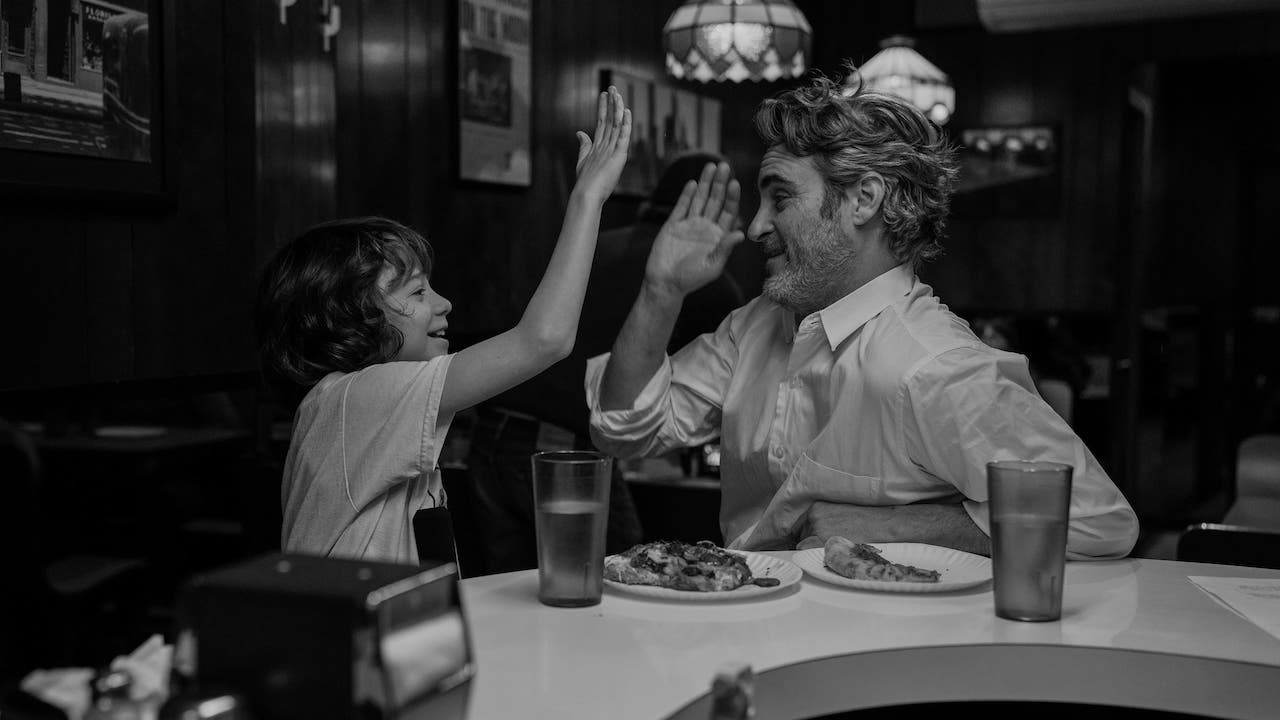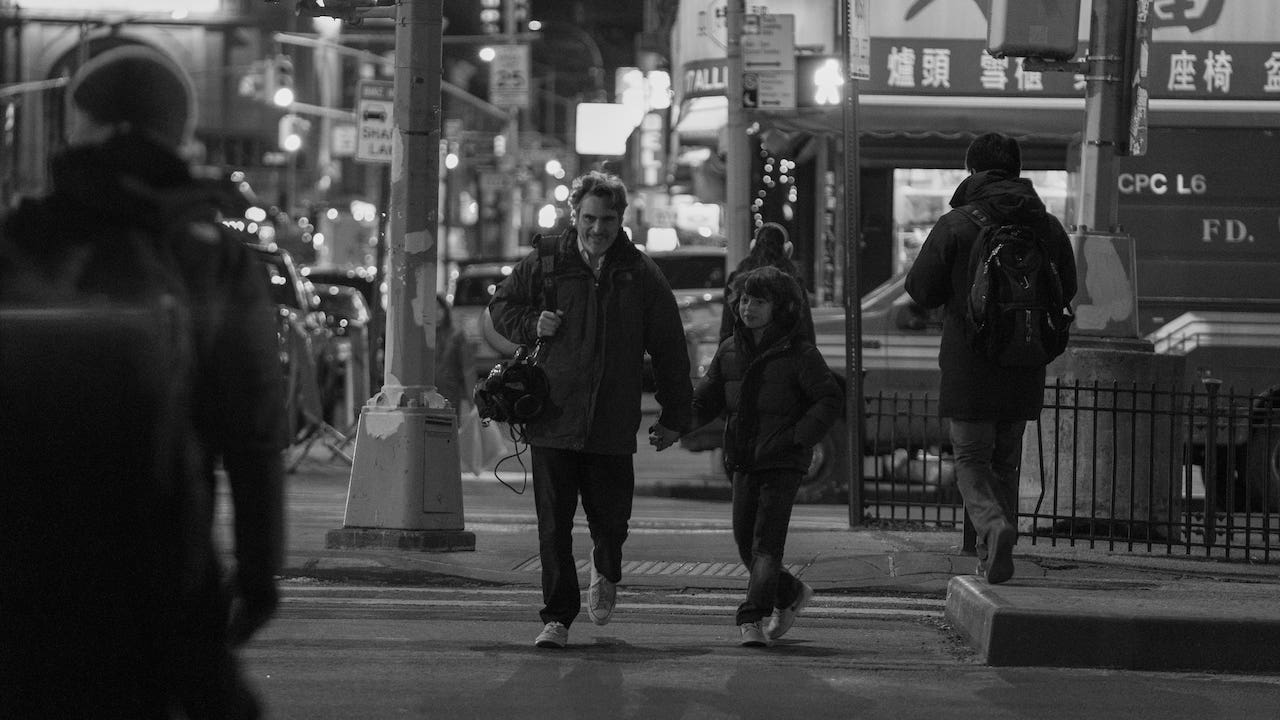C’mon C’mon is the best movie ever made about a podcast, with an ever-compelling Joaquin Phoenix
Mike Mills’ latest drama is keenly invested in the lessons children and adults can learn from one another.

Kids say the darnedest things in Mike Mill’s rich parental drama C’mon C’mon. According to Rory Doherty, it’s a monochrome portrait of love and pain that never feels artificial.
It speaks to a director’s great skill that they can not only write multiple rich, focused emotional arcs, but also coax performances out of Oscar-winners and child actors alike to make the whole affair feel utterly authentic. In C’mon C’mon, Mike Mills gives us the apex of ambling, insecure people bringing out the love and pain in each other—and the best movie about making a podcast ever made.
In his first lead role since his Academy Award for Joker, Joaquin Phoenix assures us that the warmth, affection and introspective powers we saw in Her haven’t gone anywhere. Playing the sensitive, if a little worn-out, radio journalist Johnny, within minutes we get a glance at his empathetic powers through conducting interviews for a project exploring the lived experiences of children of immigrants in Detroit.
It’s part of a broader, cross-country project that will take him back home to New York before heading to New Orleans. Complications arise when he becomes the care-giver to his nephew while his sister Viv (Gaby Hoffman) attends to her bipolar husband, Paul (Scoot McNairy).
But Johnny’s expectations of an avuncular relationship are dashed as he learns how probing and socially abnormal his nephew Jesse (Woody Norman) really is. Most kids are unafraid of awkward topics, but Jesse takes it to a whole new level. Johnny’s usual way of relating to kids, as an active listener in an interview setting, won’t work with Jesse; this isn’t someone Johnny can softly interrogate, but someone who pursues his own style of emotional investigation.
Johnny’s exes, his mother’s health, the pain Paul brought on their family; no topic is off-limits for Jesse, in a sophisticated performance by relative newcomer Woody Norman. He asks Johnny about his deepest anxieties in such a non-confrontational way that it’s disarming, and while he’s largely unaware of the psychological weight of his questions, his endless curiosity compels him to keep asking.

It’s to Norman, Phoenix and Mills’ credit that their relationship never rings false; the ways they express themselves and react to each other gives a sparkling chemistry that holds up the film every moment they’re on screen together. After a slightly lax introductory ten minutes as all the pieces are being set up for the narrative proper, the characters’ unfolding journeys are deeply engaging, with a tangible richness to their emotional worlds.
There isn’t an uncomplicated relationship in C’mon C’mon. Such emotional complexity is required for a film deeply invested in the lessons children and adults can learn from one another, and the frustration felt when one group feels the other can’t appreciate what matters most to them. Incorporating the testimonies of children of immigrants is a genius turn; the conflicting values being passed from one generation to another have rarely felt this relevant and urgent.
Outside the main pair, a host of supporting turns add nuanced perspective to Mills’ story. Hoffman’s Viv is a standout; a mother who’s tired of everything being asked of her at once, but still willing to offer the most to people in need. McNairy, as an unstable character largely existing on the peripheries of the narrative, gives a startlingly vivid portrayal of a severely affecting mental condition that deeply tinges how you relate to the world. In response to these characters, Jesse and Johnny’s journeys converge; they learn how we engage with each other is fuelled by our insecurities, but it can also be fuelled by our love.

In its craftsmanship, C’mon C’mon feels precious. The monochrome colour scheme really brings out the darkest blacks and the brightest whites (in Los Angeles traffic and wintery New York vistas), and Robbie Ryan’s cinematography is composed of simple, delicate framing and graceful camera moves. Often, subtitles will appear to establish locations or namedrop texts the characters read from (this is the only film this year with a built-in reading list). But save for the occasional repetitive dramatic beat, it never feels artificial or underwhelming.
It’s a film scared that children and adults think in too different ways to ever really connect, and endeavours to find the way to bring them together. C’mon C’mon feels both completely effortless and impeccably crafted, a warm embrace from someone who knows how you feel, and wants to let you into their interior world in just the same way.


























